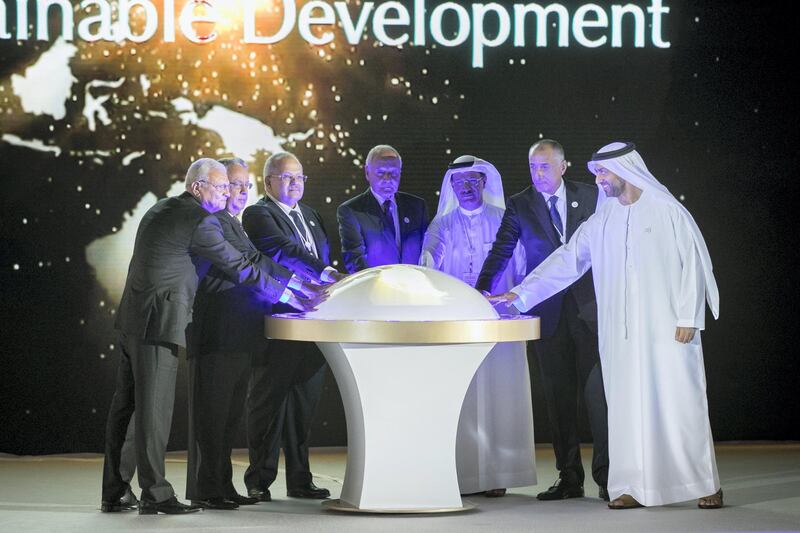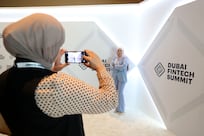The Arab Digital Economy Strategy, launched in Abu Dhabi on Sunday with all 22 Arab League members in attendance, will be reviewed one last time before it is finalised in March.
The initiative, supported by the UAE Government and sponsored by Sheikh Mohamed bin Zayed, Crown Prince of Abu Dhabi and Deputy Commander of the UAE Armed Forces, aims to establish digital inclusion and alignment on legislative and technological infrastructure across the Arab League.
The head of the review committee and industry experts said there are still challenges to overcome before all member states are able to work together to achieve common goals.
"Each country is at a different stage of development … this is in terms of economics, digital transformation and capacity within the government. You cannot just force the strategy on any country," Richard Kerby, head of the review committee of the Arab Digital Economy Strategy, told The National.
“There needs to be a framework that allows all 22 countries to move up and that is the most challenging part. Another challenge is that each country has to develop its own strategy within the framework of the regional strategy.”
The review committee was set up in August and the first draft of the strategy was for recommendations in early November. The committee will receive a new draft of the strategy this month to provide further recommendations.
The plan, which was drafted by Cairo University, is almost in its final stages, said Mr Kerby, adding that "it just needs some minor fine-tuning. It is expected that it will be presented before the head of states during Arab League’s meeting in March next year.”
_____________
Read more:
Arab Parliament urges Arab League to reinstate Syria
Arab and African states discuss forming a Red Sea security council
______________
Atef Helmy, former communications and IT minister of Egypt, said that digital numbers are quite impressive in the Middle East and North Africa region but that "there is a negative side as well". He said having more Arabic digital content should be the top priority of all stakeholders in the league.
"The Arab world is one of the richest regions when it comes to history but we have less than 2 per cent of Arabic digital content … this huge gap will have [an adverse] impact on the future,” said Mr Helmy.
Digital business adoption is also low in the region.
“In one of the digitally-advanced nations like the UAE, SMEs online presence is only 18 per cent. In Saudi Arabia and Egypt, it is only 15 and 7 per cent, respectively,” Mr Helmy said.
According to figures by the United Nations, the Arab League trails behind Europe, Asia and the Americas in terms of its e-government development index, which is a composite indicator that consists of three metrics: online services, telecommunications and human capital.
“E-government penetration in the Middle East is very low at 6 per cent,” said Mr Helmy.
Stakeholders also demand for more sophisticated training and development initiatives.
“Preparing people for digital transformation at the institutional level is very important. There needs to be lot of training and development and [still] many institutions are using conventional techniques,” said Tarek Amer, governor of the Egyptian central bank.







